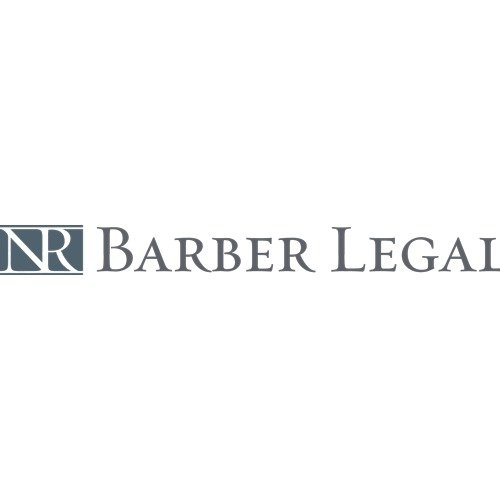Best Elder Abuse Law Lawyers in Perth
Share your needs with us, get contacted by law firms.
Free. Takes 2 min.
List of the best lawyers in Perth, Australia
About Elder Abuse Law in Perth, Australia
Elder abuse law in Perth, Australia primarily focuses on protecting older individuals from various forms of abuse, including physical, emotional, financial, and neglect. The legislation aims to safeguard the rights and dignity of older adults in the community and within care facilities. In Western Australia, there is a growing awareness of the importance of addressing elder abuse through dedicated legal frameworks and support services. Elder abuse is considered a significant social issue, and the legal system provides mechanisms for prevention, intervention, and justice for affected individuals.
Why You May Need a Lawyer
There are several situations where you might require legal assistance in the area of elder abuse law:
- Financial Exploitation: If an older adult is being financially exploited or manipulated, legal intervention may be necessary to protect their assets and rights.
- Physical or Emotional Abuse: In cases where an elder is experiencing physical harm or psychological distress, a lawyer can help navigate protective orders and other legal remedies.
- Neglect: If an elder is being neglected by their caregiver or within a facility, legal action may be necessary to ensure their safety and well-being.
- Powers of Attorney Disputes: Legal advice may be required if there are disputes regarding the validity or misuse of a power of attorney.
- Defending Allegations: Legal representation may be necessary for someone accused of elder abuse to ensure they receive a fair hearing.
Local Laws Overview
In Western Australia, there are several laws and regulations relevant to elder abuse:
- Guardianship and Administration Act 1990: This act relates to the protection and administration of the affairs of adults who are unable to manage their own care or financial affairs due to disability.
- Age Discrimination Act 2004: Ensures the protection of older adults from discrimination based on age, particularly in areas like employment and service provision.
- Criminal Code Act Compilation Act 1913: Provides for criminal sanctions against those who perpetrate physical, emotional, or financial abuse against the elderly.
- Family and Domestic Violence Protection Act 1978: Offers protective measures for seniors experiencing domestic violence, including restraining orders.
Frequently Asked Questions
What constitutes elder abuse?
Elder abuse can include physical, emotional, sexual, and financial abuse, as well as neglect. It involves intentional or unintentional harm to an older person by someone they rely on or trust.
Who can report elder abuse?
Anyone who suspects that an elder is being abused can report it. This includes family members, friends, healthcare workers, and members of the community.
How can I identify financial elder abuse?
Signs include unexplained withdrawals from bank accounts, sudden changes in financial documents or wills, missing belongings or cash, and unpaid bills despite sufficient funds.
What legal protections are available for elderly residents in care facilities?
Residents in care facilities are protected under various regulations that ensure their rights to safe, dignified, and respectful treatment.
Can a lawyer help with getting guardianship over an elder?
Yes, a lawyer can guide you through the process of applying for guardianship if an elder is unable to make decisions for themselves due to incapacity.
What should I do if I suspect elder abuse?
If you suspect elder abuse, report it to the authorities, such as the police or adult protection services, and consider consulting a lawyer for legal advice.
Is elder abuse a criminal offense?
Yes, certain forms of elder abuse, such as physical violence and severe financial exploitation, can be criminal offenses with serious penalties.
Are there emergency services for elder abuse victims?
Yes, emergency services like hotlines and shelters exist to support victims of elder abuse. Contacting local community services can provide immediate assistance.
What is a Power of Attorney, and how does it relate to elder abuse?
A Power of Attorney is a legal document that allows someone to make decisions on behalf of an elder. It can be misused, leading to financial abuse.
How can legal intervention help prevent further abuse?
Legal intervention can help by obtaining restraining orders, securing guardianship, pursuing legal actions against abusers, and ensuring protective oversight for the elder.
Additional Resources
If you need more information or assistance, consider contacting the following resources:
- Advocare: Provides support and advocacy to elder abuse victims in Western Australia.
- Office of the Public Advocate: Offers information and assistance regarding guardianship and administration for those unable to manage their own affairs.
- Elder Abuse Helpline: A dedicated helpline offering advice and support for issues related to elder abuse.
- Legal Aid Western Australia: Provides legal services and advice for qualifying individuals, including those affected by elder abuse.
Next Steps
If you need legal assistance in elder abuse law, consider taking the following steps:
- Consult a Lawyer: Seek legal advice to understand your rights and options. Consider lawyers who specialize in elder abuse or family law.
- Gather Evidence: Collect any relevant documentation or evidence that may support your case, such as bank statements, medical records, or witness statements.
- Report the Abuse: Contact the police or relevant authorities to formally report the abuse and initiate protective measures.
- Seek Support: Engage with support services and counseling to assist both the affected elder and family members in managing the emotional impact of the situation.
- Follow Legal Processes: Adhere to legal procedures and court requirements to ensure the best possible outcome for the elder's safety and rights.
Lawzana helps you find the best lawyers and law firms in Perth through a curated and pre-screened list of qualified legal professionals. Our platform offers rankings and detailed profiles of attorneys and law firms, allowing you to compare based on practice areas, including Elder Abuse Law, experience, and client feedback.
Each profile includes a description of the firm's areas of practice, client reviews, team members and partners, year of establishment, spoken languages, office locations, contact information, social media presence, and any published articles or resources. Most firms on our platform speak English and are experienced in both local and international legal matters.
Get a quote from top-rated law firms in Perth, Australia — quickly, securely, and without unnecessary hassle.
Disclaimer:
The information provided on this page is for general informational purposes only and does not constitute legal advice. While we strive to ensure the accuracy and relevance of the content, legal information may change over time, and interpretations of the law can vary. You should always consult with a qualified legal professional for advice specific to your situation.
We disclaim all liability for actions taken or not taken based on the content of this page. If you believe any information is incorrect or outdated, please contact us, and we will review and update it where appropriate.

















